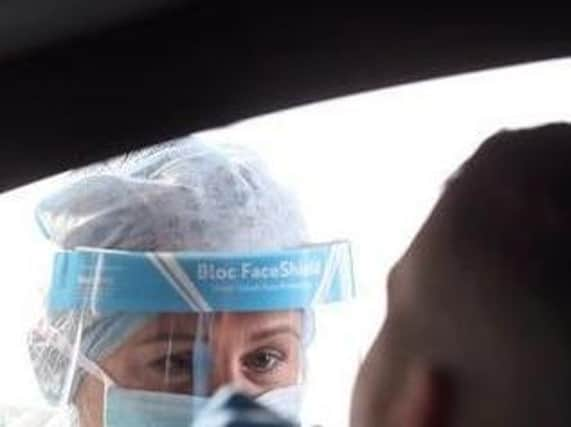New study estimates 49,000 (3.3% of population) in the north would have tested positive for COVID-19 antibodies


It is estimated that an average of 49,000 people aged over 16 in Northern Ireland would have tested positive for antibodies during this time. This equates to 1 in 31 people aged 16 and over.
In England, an estimated 8.7% of people would have tested for antibodies. The estimate is 5.5% in Wales and 7.4% in Scotland. This is according to an analysis taken from a Coronavirus Infection Survey article published by the Office for National Statistics last month.
Advertisement
Hide AdAdvertisement
Hide AdThe analysis is based on blood test results taken from a randomly selected subsample of individuals aged 16 years and over.
The antibodies can be used to identify individuals who have had the infection in the past. It takes between two and three weeks for the body to make enough antibodies to fight the infection, but once a person recovers, antibodies remain in the blood at low levels, although these levels can decline over time to the point that tests can no longer detect them.
Having antibodies can help prevent individuals from getting the same infection again. The presence of antibodies is measured to understand who has had COVID-19 in the past, although the length of time antibodies remain at detectable levels in the blood is not fully known.
It is also not yet known how having detectable antibodies, at some time in the past, affects the chance of getting COVID-19 again.
Estimated 49,000 in the north would have had antibodies.